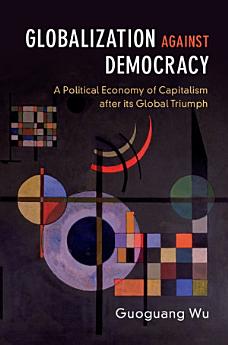Globalization against Democracy: A Political Economy of Capitalism after its Global Triumph
এপ্ৰিল ২০১৭ · Cambridge University Press
৫.০star
১ টা পৰ্যালোচনাreport
ইবুক
353
পৃষ্ঠা
reportমূল্যাংকন আৰু পৰ্যালোচনা সত্যাপন কৰা হোৱা নাই অধিক জানক
এই ইবুকখনৰ বিষয়ে
Globalization has reconfigured both the external institutional framework and the intrinsic operating mechanisms of capitalism. The global triumph of capitalism implies the embracing of the market by the state in all its variants, and that global capitalism is not confined to the shell of nation-state democracy. Guoguang Wu provides a theoretical framework of global capitalism for specialists in political economy, political science, economics and international relations, for graduate and undergraduate courses on globalization, capitalism, development and democracy, as well as for the public who are interested in globalization. Wu examines the new institutional features of global capitalism and how they reframe movements of capital, labor and consumption. He explores how globalization has created a chain of connection in which capital depends on effective authoritarianism, while democracy depends on capital. Ultimately, he argues that the emerging state-market nexus has fundamentally shaken the existing institutional systems, harming democracy in the process.
মূল্যাংকন আৰু পৰ্যালোচনাসমূহ
৫.০
১ টা পৰ্যালোচনা
লিখকৰ বিষয়ে
Guoguang Wu is Professor of Political Science, History, and Chair in China and Asia-Pacific Relations at the University of Victoria, British Columbia. He previously served as an editor for the People's Daily in Beijing, and participated in political reform of China in the 1980s in the capacity of a policy advisor and speechwriter to the national leadership. He is the author and editor of eight books, including China's Party Congress: Power, Legitimacy, and Institutional Manipulation (Cambridge, 2015).
এই ইবুকখনক মূল্যাংকন কৰক
আমাক আপোনাৰ মতামত জনাওক।
পঢ়াৰ নির্দেশাৱলী
স্মাৰ্টফ’ন আৰু টেবলেট
Android আৰু iPad/iPhoneৰ বাবে Google Play Books এপটো ইনষ্টল কৰক। ই স্বয়ংক্রিয়ভাৱে আপোনাৰ একাউণ্টৰ সৈতে ছিংক হয় আৰু আপুনি য'তে নাথাকক ত'তেই কোনো অডিঅ'বুক অনলাইন বা অফলাইনত শুনিবলৈ সুবিধা দিয়ে।
লেপটপ আৰু কম্পিউটাৰ
আপুনি কম্পিউটাৰৰ ৱেব ব্রাউজাৰ ব্যৱহাৰ কৰি Google Playত কিনা অডিঅ'বুকসমূহ শুনিব পাৰে।
ই-ৰীডাৰ আৰু অন্য ডিভাইচ
Kobo eReadersৰ দৰে ই-চিয়াঁহীৰ ডিভাইচসমূহত পঢ়িবলৈ, আপুনি এটা ফাইল ডাউনল’ড কৰি সেইটো আপোনাৰ ডিভাইচলৈ স্থানান্তৰণ কৰিব লাগিব। সমৰ্থিত ই-ৰিডাৰলৈ ফাইলটো কেনেকৈ স্থানান্তৰ কৰিব জানিবলৈ সহায় কেন্দ্ৰত থকা সবিশেষ নিৰ্দেশাৱলী চাওক।




